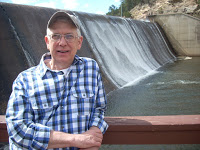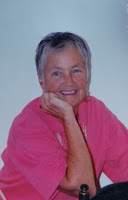“When did you decide to be homosexual?” A gay man was once asked that question in an interview on TV. His answer was perfect: “When did YOU decide to be heterosexual.” That says it all, doesn’t it? Did any LGB or T ever make the choice to be LGB or T. I don’t think so. That is not to say there are no choices involved. “When did you decide to come out,” might be the more appropriate question. But is coming out or not coming out even a viable choice, really. In our society today, I would say “no,” not if an LGBT person wants to live life to the fullest, then he/she must come out. But the choice must be made and that is sometimes easier said than done.
Every day is replete with decisions from the moment we wake up in the morning. Shall I get out of bed or not? Shall I have eggs or cereal for breakfast? Shall I wear this or that? Shall I go shopping? Shall I go to Sprouts or Whole Foods? Most of these choices I can make easily because I am familiar with what is required to carry them out and I can easily imagine their respective outcomes.
Here’s when I have trouble: Let’s say (theoretically) I have never been to New Mexico or Arizona and (theoretically) I know absolutely nothing about either place. We’re on a road trip. Gill says to me, “You choose where we go. New Mexico or Arizona? Which will it be? Tell me right now because there is a fork in the road up ahead and I have to know which one to take.”
I have trouble with that. Since I have no information about either place and know nothing about them, it is not a choice. It’s a guess—a “pick a name, throw a dart exercise at best.” So, “no information” renders good choice-making difficult or impossible. This is not to say there is anything wrong with guessing and taking a chance, but only in some situations.
Even in the case of coming out or not, again it’s a matter of having some information to base your choice on. When I first became aware of my sexual attractions, I did not choose to come out because I had no information about what was going on with my feelings. I didn’t even know there was a choice involved. I was convinced that those feelings would change as I matured. I was totally unaware of any other person having homosexual feelings. When those feelings didn’t change I was convinced there was something wrong with me and I needed to fix it. Now, thanks to the gay rights movement and the general availability and dissemination of information, we know better and we can honor our feelings rather than denying them.
Another problem with choice making: Have you ever been in the store looking for say toothpaste? Your favorite old stand-by kind is no longer available—at least you cannot recognize anything that looks like it on the shelf. You need to choose a new kind. How do you choose one out of 250 boxes of toothpaste and you do not want to spend your entire day comparing them? Again you are faced with guessing because there is no way you are going to get all the information about all of the different brands in a reasonable amount of time. Sometimes choices can be overwhelming. Guessing and taking a chance on toothpaste in this situation makes sense.
When I was teaching young children in school I learned it’s best to give them a choice but make it very simple. Do you want “this” or “that?” Choose between no more than two things. This way the little buggers feel empowered because they are choosing, but the outcome of their choosing will be appropriate and doable for the teacher.
Sometimes I wish choices would be kept simple for adults; namely, our electorate. Take the presidential election of 2000. The voters were given a choice of two major candidates: George Bush, Al Gore, and multiple third-party candidates, most notably Ralph Nader. Had we been given a simpler choice; i.e., George Bush or Al Gore, Mr. Gore would have been elected according to many analysts, and the world would be quite a different place today; certainly our country would be a different place today. One has to wonder if it was true that the republicans paid Nader to run that year. They knew it would split the democrat’s vote.
That was not the problem in the recent Brexit vote in Britain. A simple choice was presented: in or out of the European Union. The majority, though the vote was close, chose to leave the EU. Now, in retrospect, it seems a couple of million British voters feel they made the wrong choice. But here is a good example of the choice-making problem described above: not enough information. It seems clear now that the dust has settled that many who voted to leave the EU were persuaded by the fear mongers of the opposing side.
Sounds very much like our current presidential campaign. Mr. Trump is an entertainer and gets huge media attention. He’s different—not establishment. Many people have chosen to support him for this reason alone—literally this reason alone—ignoring his ideology and dangerous policies and beliefs. Guessing and taking a chance when choosing a president does not make sense to me.
So, for me, to create an opportunity to make a good choice requires having enough factual information, not lies, not propaganda, not spins, plus information from both sides. Unfortunately, in politics most people are not willing to listen equally to both sides. Or they have already made the emotional decision that one side is good or maybe just okay, but the other side is so bad that they cannot be believed no matter what. Often, it seems, it’s a question of which lies are most convincing. I love “fact checker” and I wish journalists would use it on the spot in interviews and debates.
In the case of making a choice, say, to avoid an accident while driving a car one cannot take the time to gather information and ponder it even for a minute. A choice is made to swerve to one side or the other, but that fits my concept of a reaction rather than a choice.
The next time I am faced with a choice I only hope I have some, not TOO much, but SOME good information, factual information, and some time to apply it. I do not want to react instantly, unless I have to, but I prefer to have enough time to think it through. In the case of a presidential election, I don’t mean years. I should think a couple of months would be enough before one is ready to cast a vote. In the case of coming out, well, I see choices to come out occurring everyday as an ongoing, lifetime process. But once the basic choice is made to open the closet door, the rest should fall into place.
© 5 July 2015
About the Author
Betsy has been active in the GLBT community including PFLAG, the Denver Women’s Chorus, OLOC (Old Lesbians Organizing for Change), and the GLBT Community Center. She has been retired from the human services field for 20 years. Since her retirement, her major activities have included tennis, camping, traveling, teaching skiing as a volunteer instructor with the National Sports Center for the Disabled, reading, writing, and learning. Betsy came out as a lesbian after 25 years of marriage. She has a close relationship with her three children and four grandchildren. Betsy says her greatest and most meaningful enjoyment comes from sharing her life with her partner of 30 years, Gillian Edwards.


